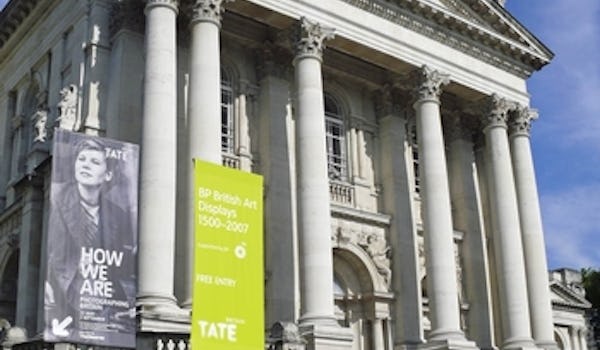
This event has been and gone.
If we know of a trusted online shop with tickets available, we will always provide a link to buy from them
Add to your event list
Animal Magnetism: Art Beyond the Species Divide
What distinguishes human beings from other species? What do depictions of animals tell us? This four-week course led by performer and scholar Vikki Chalklin focuses on the significance of animals and particularly human/animal relationships in art and contemporary culture.
Drawing on traditions of animal symbolism in art, literature and myth as well as concepts emerging from philosophy, feminist and queer theory, this course looks at the wild, domestic, and mythical creatures portrayed within Tate Britain’s collections with special out-of-hours access. It also taps into current debates and practices that think beyond an anthropocentric view of the world, and playfully draws on the weird and wonderful ways people inhabit animal identities in fashion, online, club and sub-cultures.
Queering the boundary between humans, animals and other non-human beings, this course asks what do these human/non-human relationships and identities reveal about our experience of the world?
No previous experience or knowledge is necessary, just an interest in exploring these questions through a variety of cultural material and theoretical approaches.
Week 1: Symbolism and Myth
What are the cultural meanings associated with various species of animal as they are portrayed in a range of art works? We will consider the significance of animals in religion, mythologies, fables and literature to contemplate how and why particular species have come to symbolise a range of very human qualities and emotions.
Week 2: Beasts, Monsters and Hybrids
How have depictions of monstrous human/animal hybrids come to represent evil and conjure fear, alarm, or distress? What happens when human bodies fall outside what is commonly considered ‘normal’? We consider disability and gender non-conformity, as well as the specific ways in which the feminine has been coded as monstrous.
Week 3: Animal magnetism (or, why your pet is psychic)
Considering the Eighteenth-century concept of Animal Magnetism – a natural force exerted and shared by all animals – we use the commonly accepted idea that animals are able to tap into instinctive forms of embodied knowledge and consider the more human associations of feeling and emotion, or what is often termed affect.
Week 4: Species Dysphoria
Looking at the phenomenon of species dysphoria – the sense of one’s body being of the wrong species – we consider what shifting focus away from the human allows us to think and say about the world. Through current debates around 20th and 21st Century Anthropocentrism, that assumed the superiority and centrality of human beings above all other species, we consider the possibilities open to us through breaking the boundaries between human and animal.

Tate Britain
See all events at Tate Britain
Tate Britain
See all events at Tate Britain